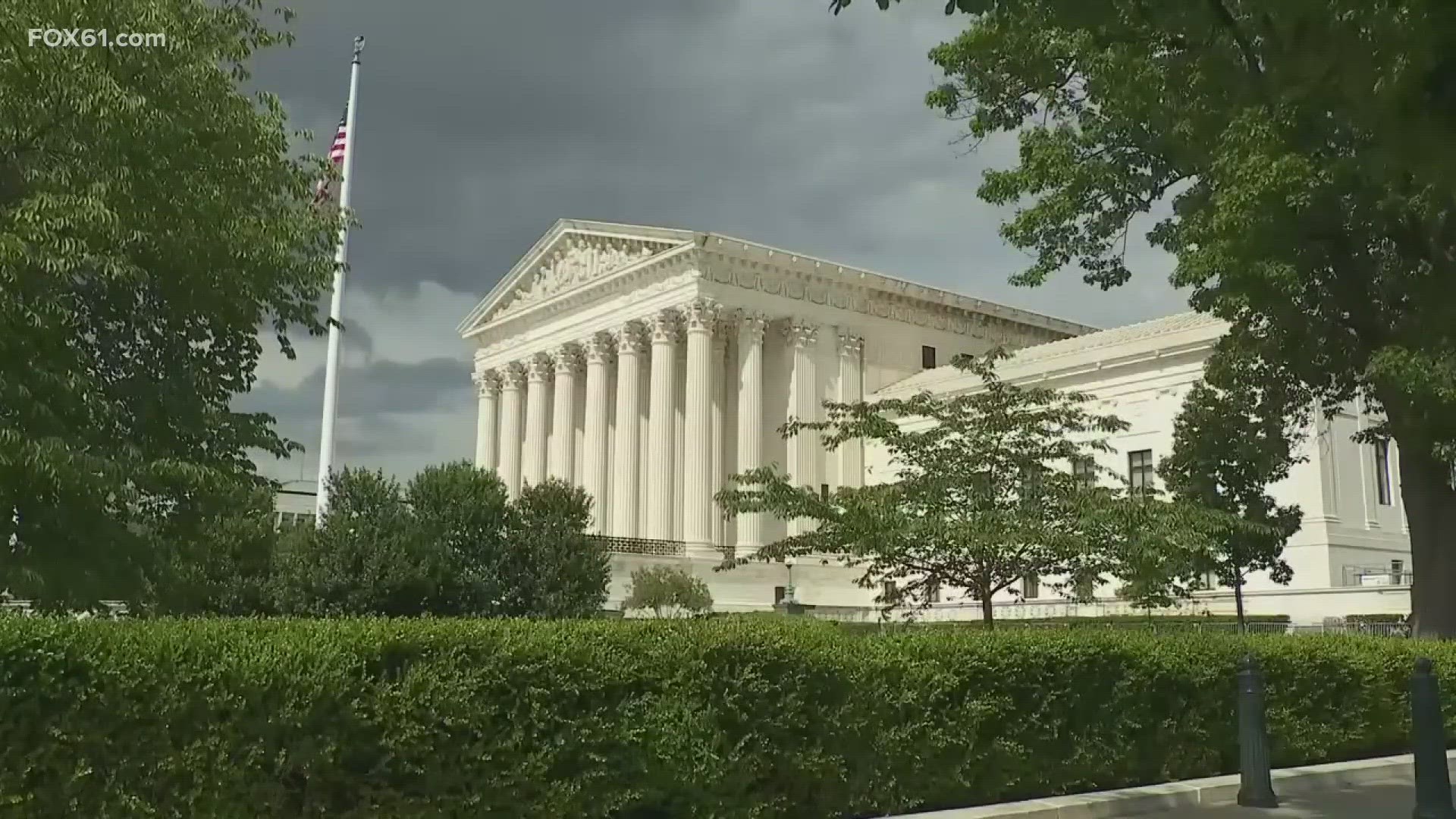HARTFORD, Conn. — The U.S. Supreme Court's decision to strike down affirmative action in college admissions on Thursday may bring some uncertainty to students applying to college in Connecticut.
The court’s conservative majority effectively overturned cases reaching back 45 years in invalidating admissions plans at Harvard and the University of North Carolina, the nation’s oldest private and public colleges, respectively.
The decision, like last year’s momentous abortion ruling that overturned Roe v. Wade, marked the realization of a long-sought conservative legal goal in finding that race-conscious admissions plans violate the Constitution and a law that applies to recipients of federal funding, as almost all colleges and universities are.
The court's ruling will force many colleges and universities to overhaul their admissions policies.
What is affirmative action?
Cornell Law School defines it as "a set of procedures designed to; eliminate unlawful discrimination among applicants, remedy the results of such prior discrimination, and prevent such discrimination in the future." This typically refers to admissions policies aimed at increasing the number of Black, Hispanic and other minority students on campus.
Colleges and universities that take race into consideration have said they do so as a part of a holistic approach that reviews every aspect of an application, including grades, test scores and extracurricular activities.
President Joe Biden said he "strongly, strongly" disagrees with the ruling.
Gov. Ned Lamont said "Our public and private higher education institutions pride themselves on recruiting students of all backgrounds and perspectives and providing them a high-quality academic experience. They’ve been planning for this day and will taking a holistic approach to the admissions process, including outreach to marginalized and underserved communities, developing a robust, culturally competent curriculum, and ensuring our student body and our staff are representative of all our communities.”
What does this mean for students in Connecticut?
Nine states already prohibit any consideration of race in admissions to their public colleges and universities. Connecticut is not one of those states.
As the news of the court's decision was made public, multiple schools across Connecticut began to issue statements reacting to the ruling.
Connecticut College (Conn) in New London said, "Conn remains committed to the ideal of full participation, where all people have the opportunity to reach their full potential, and to the principles of diversity, inclusion and justice in all we do."
Conn said it joined over 30 liberal arts institutions of higher education last fall in submitting an "amicus curiae" (friend of the court) in support of Harvard and UNC.
When it comes to students applying to attend Conn next fall, the college said, "As part of Conn’s individualized applicant review, we seek to enroll a highly diverse student body whose experiences, accomplishments, promise, motivation, integrity and other characteristics help to create a powerful environment that prepares students for success as adults in a dynamic, democratic and increasingly diverse society. Our values remain the same and we will comply with the legal parameters that the Court sets."
Yale's president said the university will continue its "unwavering commitment to creating and sustaining a diverse and inclusive community," and added, "We will continue to foster diversity in its many dimensions and will use all lawful means to achieve it."
Yale said it also submitted an amicus last fall in support of the Harvard and UNC cases.
In the months ahead, the university's "deans of admissions and other university leaders will review Yale’s admissions policies to ensure that Yale College, the Graduate School of Arts and Sciences, and every professional school comply with the law as interpreted by the Supreme Court. Going forward, schools will communicate as needed to their prospective and current students, as well as faculty, staff, and alumni."
Yale Law School plans to host a panel discussion in September for members of the Yale community, where panelists will share their expert perspectives and legal analysis on the Court’s ruling.
Wesleyan's president assures the university "remains deeply committed to admitting a class of students that will lead to a diverse learning community on our campus."
The university said it already takes a "holistic" view of the applicant's lived experiences through other parts of their application, such as their essays, letters of recommendation, and interactions with the university's community.
"We are studying the decision to better understand how we can comply with the law while pursuing our mission. We are determined to create a diverse community, and our admission and financial aid teams have been preparing over the last several months to craft policies that will do that. While our ability to do this work has been undermined by today’s ruling, our values are unwavering," the university added.
As UConn's staff continues to review the ruling, spokesperson Stephanie Reitz said, “UConn is disappointed by the Supreme Court’s decision, but needs time to fully examine and understand its ramifications before issuing a more comprehensive response.”
The Associated Press contributed to this report.
---
Have a story idea or something on your mind you want to share? We want to hear from you! Email us at newstips@fox61.com
---
HERE ARE MORE WAYS TO GET FOX61 NEWS
Download the FOX61 News APP
iTunes: Click here to download
Google Play: Click here to download
Stream Live on ROKU: Add the channel from the ROKU store or by searching FOX61.
Steam Live on FIRE TV: Search ‘FOX61’ and click ‘Get’ to download.

